Emergency Dentistry – Warsaw, IN
The Fast, Smile-Saving Care You Need

When you or a loved one is experiencing tooth pain or an injury to the mouth, it can be difficult to stay calm and know what to do. Fortunately, there’s only one thing you need to remember when a dental emergency strikes: call East Center Dental! No matter when you call for urgent oral treatment, our team will work to see you as soon as possible so that you can get out of pain and back to smiling. Our patients don’t hesitate to call us for the fast emergency dentist in Warsaw, IN they need to save damaged smiles!
Why Choose East Center Dental for Emergency Dentistry?
- Appointments for Dental Emergencies Available
- Dental Sedation & Relaxing Amenities Offered
- Ready to Help Patients of All Ages
How We Treat Dental Emergencies
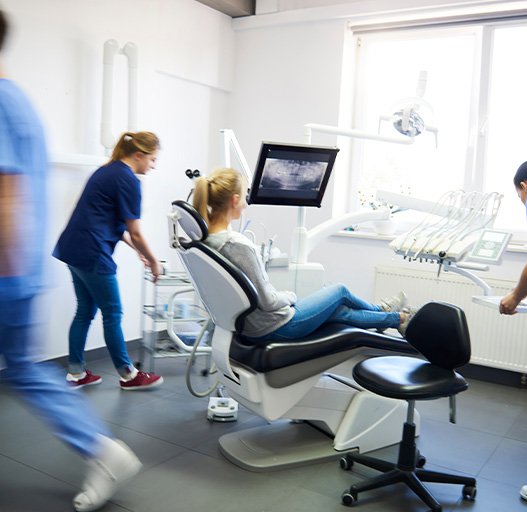
Dental emergencies can be confusing and scary, but as long as you give our team a call, we’ll handle the situation from there! Here’s what we typically do to help our emergency patients:
- A Speedy Visit – We’ll book your emergency visit for the earliest time possible. At the same time, our team can give you helpful first aid tips over the phone.
- An Emergency Exam – Once you arrive, Dr. Rudolph will closely examine your mouth to learn the cause and extent of the issue. He’ll also focus on relieving any immediate pain.
- Findings Review – Dr. Rudolph will share his findings after the exam, as well as some relevant procedures. He’ll then draft a treatment plan (using your feedback) and explain the cost(s) and timeline of your care.
- Proper Dental Care – With your treatment plan ready, our team will work quickly to help your smile recover! Whether you need dental crowns, fillings, root canals, or anything else, you can count on us.
The Most Common Dental Emergencies
With so many possible problems that can develop in the teeth and gums, knowing whether your dental issue “counts” as an emergency can be difficult. Even if you don’t think you need immediate attention, it’s best to give us a call anyway, especially if you’re experiencing one of these common dental emergencies.
Understanding the Cost of Dental Emergencies
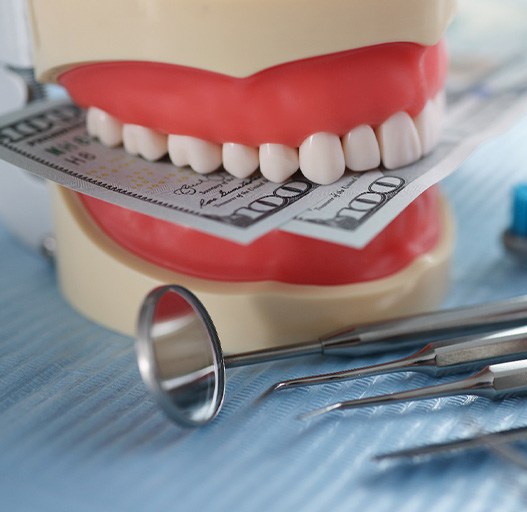
Emergency dentistry may sound expensive, but the truth is that its price varies a lot. The treatment cost depends on the patient’s problem and how a dentist solves it. With that said, you should consult Dr. Randolph for a precise estimate; he can confirm the final amount. We’ll then make your care as affordable as possible, walking you through price factors, dental insurance, etc. For more on the cost of dental emergencies, just keep reading or call us.
Every Dental Emergency is Different

Urgent dental visits don’t cost a lot, as they only include oral exams, diagnoses, and lists of treatment options. Most of a dental emergency’s expense comes from later treatment, so you should always see us in person for an estimate.
Based on your problem, we’ll likely suggest one (or more) of our emergency services. These include the following:
- Root Canals
- Gum Disease Treatment
- Tooth Extraction
- Dental Crowns
Still, you can trust us to help regardless of the final diagnosis. We’ll guide you through our team’s findings, the suggested treatment plan, and estimated costs beforehand.
Does Dental Insurance Cover Dental Emergencies?
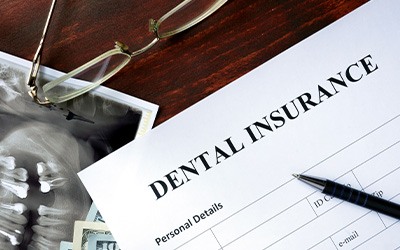
Fortunately, dental insurance tends to cover dental emergencies. Many plans will even offer full coverage for a yearly urgent oral exam, and others will meet 50-80% of the final treatment cost. You can generally trust an insurance provider to help with payment.
Even so, don’t forget that every dental plan is different. Your own may have unique rules, and yearly maximums can be enacted. You should confirm your benefits with your insurance provider before you commit to anything; our team can even help you do so.
Other Options for Making Dental Emergencies Affordable
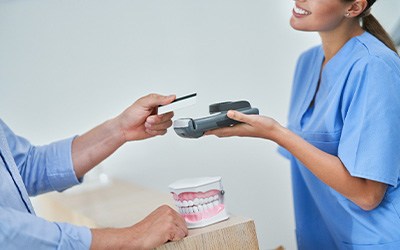
Even without insurance, you can make your dental emergency more affordable. Just rely on our practice’s varied payment options for some help! Here at East Center Dental, we offer:
- In-House Membership Plan – If you join our office’s membership plan, you’ll receive an annual emergency exam and a 10-20% discount on emergency procedures.
- CareCredit Financing – Our practice works with CareCredit, a reputable, 3rd party financier. With their help, you could pay for your dental emergency in small monthly installments.
Taking Care of Your Smile Saves You Money
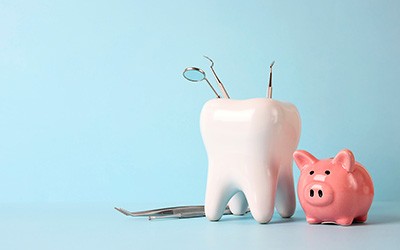
Some dental emergencies are just accidents, but quite a few result from lousy hygiene. You should invest in dental checkups and oral care to save money in the long run.
Keep in mind that delaying treatment for a dental emergency is pretty expensive. After all, putting off care worsens the problem and makes fixing it more costly. What might’ve been a mere root canal will become a pricier tooth extraction if you don’t get help now. From there, you’d have to spend time and money on follow-up care.
We at East Center Dental want your emergency care to be budget-friendly. So, please visit us to get a well-financed treatment!
Keys to Preventing Dental Emergencies
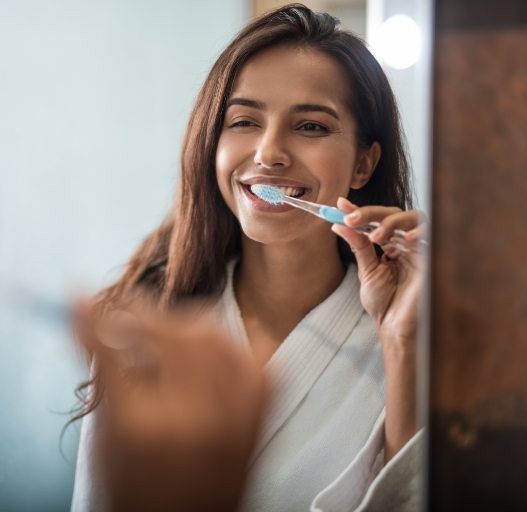
After dealing with a dental emergency, the last thing you want to do is experience another one. While there’s no way to completely eliminate your chance of ever being faced with a dental emergency again, you can significantly improve your odds of avoiding one. Here are a few of our recommendations:
Attend a Dental Checkup and Cleaning Biannually
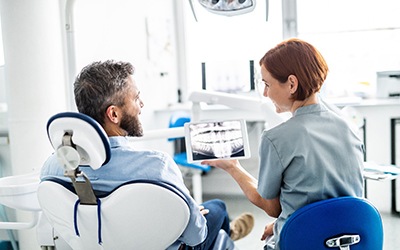
Your biannual visits to our office are important for a number of reasons. One of them is that they allow us to address potential emergencies in their early stages. In fact, we can catch everything from oral cancer to tooth decay and gum disease during the exam! Plus, we can clear away food particles, plaque, tartar, and other debris from your mouth during the cleaning, helping reduce your risk of dental damage even further.
Brush and Floss Every Day
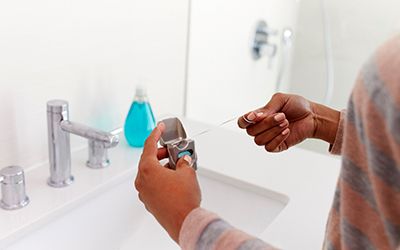
It goes without saying that you need to take care of your teeth on a daily basis as well. The first step is brushing your teeth with fluoridated toothpaste and a soft-bristled toothbrush each morning and evening (or after every meal, if you can). The second step is flossing daily and using an antimicrobial mouthwash consistently to clean between your teeth and reduce plaque buildup. Simply put, a clean mouth is a healthy mouth, so make sure to prioritize your at-home oral hygiene regimen!
Stick to a Nutritious Diet

Remember, what you eat impacts your oral health. For example, foods and drinks that are loaded with added sugar can result in enamel erosion if eaten in excess. Conversely, fresh fruits, healthy fats, and raw vegetables are packed with nutrients that your body needs to keep your jawbone strong and prevent infections. That’s why we encourage our patients to stick to a well-balanced diet and keep added sugar to a minimum.
Wear a Mouthguard When Playing Any Kind of Sport
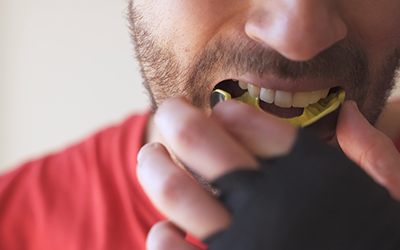
Patients often assume that they only need a mouthguard if they participate in a contact sport, like wrestling. However, it’s possible to harm your teeth and gums during non-contact ones too, like skateboarding and running. The good news is that our Warsaw dental team can have a custom one made for you so that it’s the appropriate thickness, it fits comfortably, and it protects your smile from harm. So, don’t hesitate to get in touch with us if you don’t currently have a mouthguard.
Break Bad Habits

Smoking is one bad habit that can negatively impact the condition of your teeth and gums, but it’s not the only one. To prevent infections, cracks, chips, and other forms of dental damage, we also recommend not eating ice, biting your fingernails, chewing on the back of your pencil, or using your teeth as tools to open things.
Dental Emergency FAQs
Will my toothache go away on its own?
If your once-painful toothache goes radio silent, you should be concerned, not excited. Usually, this means that the infection has “killed” the root of the tooth and can spread to the surrounding teeth and gums. That’s why it’s so important that you get a cavity treated in the early stages – before it requires a root canal or tooth extraction!
What does throbbing tooth pain mean?
If you’re struggling with throbbing tooth pain, then it’s very likely that your tooth has developed an infection or has sustained a crack. Either way, the next best step is the same: contact our Warsaw dentist to schedule an emergency exam. After learning all about your symptoms, taking X-rays, and conducting a visual exam, Dr. Rudolph will determine the root of the problem as well as the best way to move forward.
My chipped tooth doesn’t hurt. Do I still need to visit?
A chipped tooth always warrants a visit to our Warsaw dental office. How urgent your situation is depends largely on the severity of the damage, however. If the break is small and you aren’t in any pain, then scheduling an appointment within the week should suffice. If the break is significant and you are in pain, on the other hand, then you need to come to our office right away.
Should knocked-out teeth be placed in water?
Although you can use clean water to clear away dirt and other debris from your tooth, you shouldn’t submerge your knocked out tooth in water. Instead, place it in a container filled with milk – this will help preserve the root surface cells.
Note: If you don’t have milk, you can also preserve the root of your tooth by placing it back in its socket. However, you should only take this approach if it slides back into place without any force.
What is causing my jaw pain?
One of the most common causes of jaw pain is chronic teeth grinding, which can often be addressed with a custom-made nightguard. Of course, it’s possible for the persistent discomfort to stem from other issues, including TMJ dysfunction or an impacted wisdom tooth. The only way to know for certain is by scheduling an exam.
Are toothpicks safe to use?
Although toothpicks have a sharp edge that can remove food particles and other debris from between your teeth, we do not recommend using them. The two main reasons are that accidentally swallowing one can be fatal and the wood can splinter inside your mouth, cutting or irritating your gums in the process. In short, it’s best not to use toothpicks or any other sharp objects – use floss instead.
I Need a Checkup & Cleaning I Need a Dentist for My Child I am Concerned About Bleeding Gums I Have a Cavity or Broken Tooth I am Missing One or More Teeth I Want to Enhance My Smile I Want a Straighter Smile I am Scared of the Dentist I am Concerned About Sleep Apnea View Our Services
